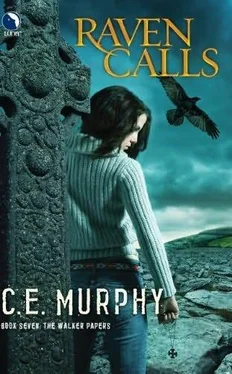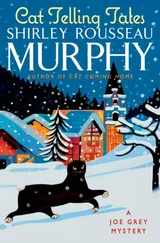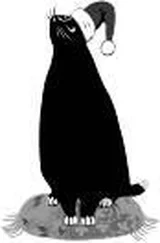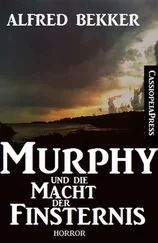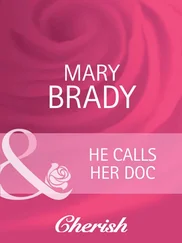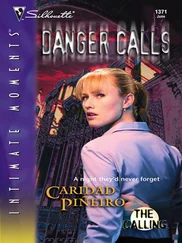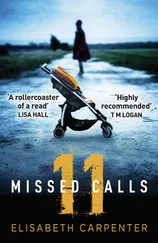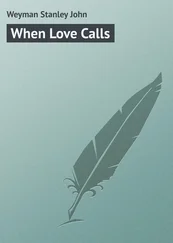She’d collected a small round shield and a silver helm on the way out, and stood over my mother’s bones with the one on her arm and the other tucked into her elbow. “I would have been thinking the world had changed more, from the way you’re dressed, Granddaughter.”
“It has. You just can’t see it from up here. You forgot this in there.” I came forward with her sword, which she glanced at with a spasm crossing her face.
“I would not have taken that. Not from a dead woman.”
“You’re not dead yet,” I said almost cheerfully, and offered it again. Her mouth twisted, but this time she accepted. Once she had, I pointed down the mountain toward my distant car. “There. There’s your first hint that the world’s changed. Horseless carriages.”
She squinted into the light, then raised her hand to block the long gold rays so she could see better. I copied her, then froze. It had been early afternoon when I’d climbed Knocknaree. Sunlight had been sporadic, falling in occasional bolts, not blazing orange on the horizon. I turned around slowly, like I could convince the world to shift on its axis if I looked carefully enough, but the sun was not on the western horizon. It was on the eastern. Sunrise, not sunset. “You said it’s the equinox, right?”
“I said you called me on the quarter day,” she agreed. I stared at the sunrise another moment, then fumbled my phone out of a pocket to stare at it instead.
Apparently it was half past ten on Monday evening. I glanced at the sky, like it was somehow lying to me, then shook myself. I hadn’t changed the phone’s time zone. It was six-thirty Tuesday morning, not ten-thirty Monday night. I changed the time, then shoved my phone back in its pocket and started counting on my fingers. I’d left Seattle Sunday morning. It was a ten-hour flight to Dublin, plus eight hours of time zones. I’d gotten in Monday morning. Gary and I had gone to Tara. It had been early Monday afternoon when I’d reached Knocknaree. No matter how I counted it, I couldn’t make it morning again without having lost well over twelve hours. “Son of a stone-cold bitch. How long was I out?”
Méabh’s eyebrows rose. “Some hours. It’s burning with the fever you were, and nothing I could do for it.”
“And you didn’t think to mention that?” We’d had a kind of busy half hour or so since I’d woken up. It probably wasn’t her fault she hadn’t brought up the length of my nap. That, however, was reason, and I had no truck with reason. “Look, never mind, forget it. We’re about a day shorter on time than we thought, though. We’re going to have to find Sheila by tonight, just in case it counts from equinox to equinox and not 365 days of the year. Otherwise…”
Otherwise my mother spent the rest of eternity in thrall to the monster she’d fought against her whole life, and in general the good guys lost a round. I didn’t want to say that aloud, so I drifted into, “…banshees usually haunt their families, right? That’s their thing when they’re not performing ritual murders for the Master?”
“It is.” The Irish I’d met never said “Yes” or “No” if two or more words would do, because their English was heavily informed by the Irish language’s structure. I kind of liked that Méabh sounded that way, too. It made a nice connection between the island’s history and its present, even if I was pretty sure she wasn’t speaking English any more than Cernunnos usually did.
“It is,” I repeated under my breath, then got to my feet and pointed down the mountain. “Okay. That’s the only possible lead we’ve got, so we’re going back to the farm, Junior. My family’s in Westport. Let’s go.”
“Not without the bones.” Méabh crouched and began to collect them while I watched in macabre fascination. That was my mother she was picking up. I hadn’t even known my mother had false teeth. I wondered if they counted as bones, and decided not. “Have ye a sack?” Méabh wondered, and I looked in dismay toward my distant car. There was a suitcase in there, anyway, but I didn’t want to traipse down and up the mountain.
I sighed, shucked my new, expensive, damaged leather coat and made a sack of it. Méabh, approving, started tossing bones in. I couldn’t quite bring myself to help. “Why are we doing this?”
“To burn them or bury them in holy ground. To break the link between body and soul. It’ll weaken the wailing woman, and her weakness will be our advantage.”
Burn or bury. I thought I could handle that. I knelt, but I didn’t start picking bones up. “She was buried once already. I was at the funeral. The coffin cost a fortune.”
Méabh paused to give me an uncertain look, and I wondered what magic translations did with words like coffin, which probably hadn’t existed in her time. I imagined something like “black box of death,” which sounded a lot more impressive. “Was she in this ‘coffin’?” Méabh asked.
“Well, of course she was! People don’t go around burying empty co—” The coffin had been closed, actually. There’d been no viewing, apparently at my mother’s vehement insistence in her will. The Irish aunts and cousins and things had tutted over it, but nobody had been quite willing to ignore the last wishes of a dead woman. And I, bitter, closed-off, angry adult daughter that I was, had refused to help carry the coffin. I had no idea if a body’s weight had been within it. I cleared my throat and, more mildly, said, “Now that you mention it I’m not sure. I assumed so.”
Méabh gave me a look that said a lot about people who made assumptions, then loaded the last of my mother’s bones into my beleaguered leather coat and stood. “ Now it’s to Westport we’ll go.”
I hopped to it, and only remembered halfway down the hill that I was supposed to be in charge.
Tuesday, March 21, 7:56 a.m.
Westport, as advertised, was a western port in the County Mayo. Basically there was nothing between it and Canada except a stray whale or two. That didn’t do the town justice, though. It was gorgeous, with a cool little octagonal town, er, square, and wide streets, which meant two cars almost fit past each other on them. A river ran through it, there were charming back alleys that opened into unexpected shopping streets, and one of the town pubs was owned and run by somebody in the Chieftains. On the whole it didn’t look like the sort of place to go burn bones and battle banshees. But then, I didn’t have a long list of places I thought did look like a girl ought to be doing those things there, so Westport was as good a scene as any. I nearly said as much to Méabh, but then like almost everything else I’d been inclined to say during the drive down, I bit it back.
In all fairness, she was handling the modern world very, very well. She’d stared at the car with interest and hardly seized up at all when I turned the engine on. She’d been wide-eyed and delighted as a kid when we hit the open road, or she had been until the first oncoming traffic came on. I was probably grateful the magic hadn’t seen fit to translate what she’d said then. She’d craned her neck to gawk at the towns we drove through, especially when we hit a bigger one a few miles outside of Westport and there were several-story buildings towering above us. She’d turned a little gray then, and only when we’d left its outskirts had she said, “How many people live in this land?”
“What, in Ireland? I don’t know, I think it’s like four million.” I’d glanced her way, seen total incomprehension slide over her features and wondered what had constituted a large town in her time. Hundreds or thousands, probably. Not tens of thousands. Millions was beyond her scope, and realistically, beyond mine. A million was pretty abstract, somewhere in the “One, two, many” range as far as my ability to really comprehend it went.
Читать дальше
Конец ознакомительного отрывка
Купить книгу
